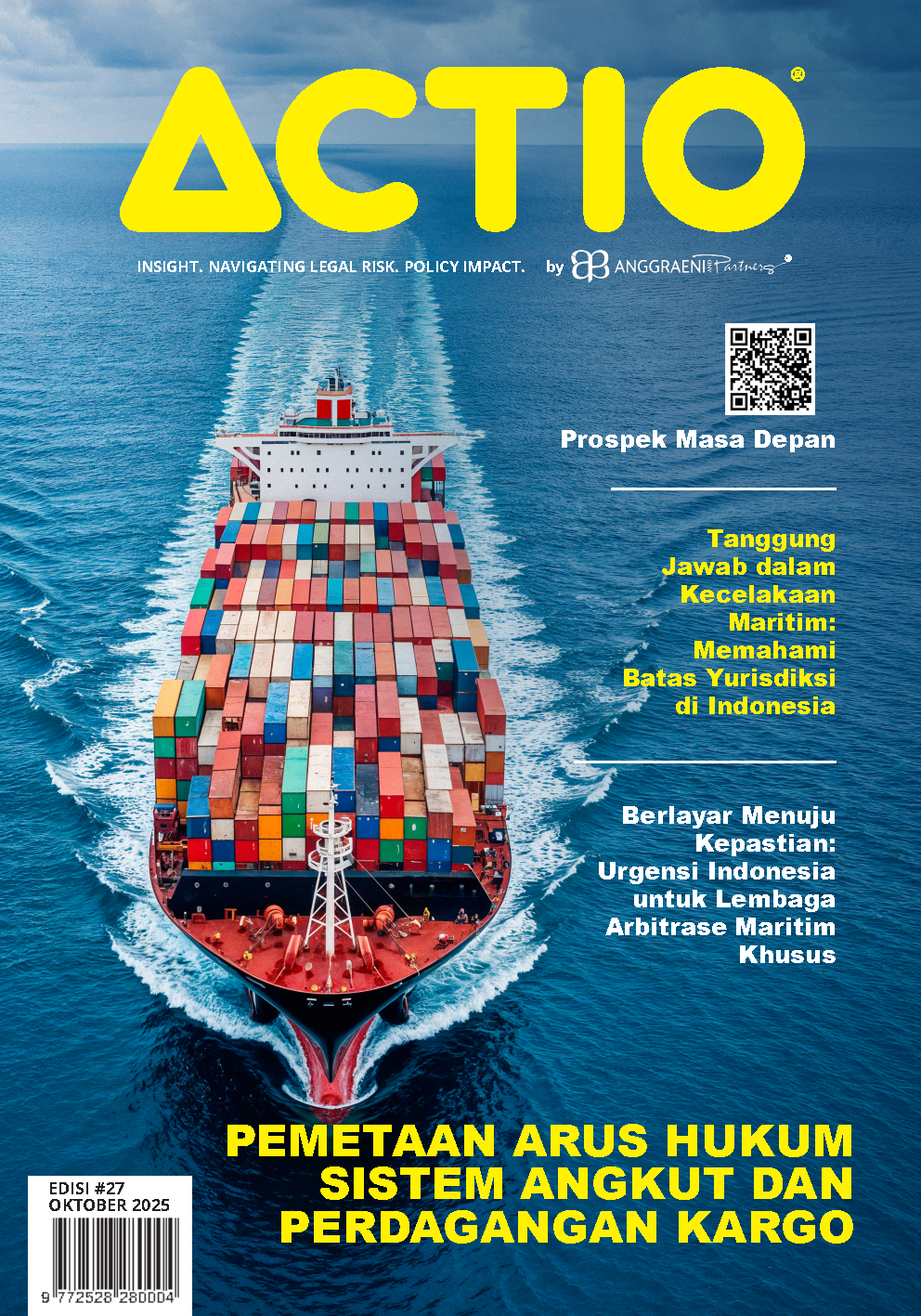Draft of Criminal Code and The Crucial Issues In It
The Criminal Code (“KUHP”) currently enforced in Indonesia is the legacy of the Dutch colonial government. Indonesia, as an independent and sovereign country for almost 77 years, is still using the KUHP as the basis for the applicable criminal law. The developments during the last 77 years and rapid changes in society bold legal reforms to align with legal politics, conditions, and developments in the life of the society, our nation, and the state of human interactions today. This legal reform was realized by the Government of Indonesia with the drafting of the Criminal Code Draft Law (“RUU KUHP”). Furthermore, the RUU KUHP include several articles that need to be highlighted which raise questions and further issues arising from these articles.
The first aspect concerns where the new law deals with the issue of customary law. It cannot be denied that Indonesia is a plural country consisting of various ethnic groups and customs. Customary law is defined in Article 2 of RUU KUHP as “laws that live in society which determines that a person deserves to be sentenced is customary criminal law”. Furthermore, Article 100 of RUU KUHP, in contrast to KUHP, imposes the death penalty.The RUU KUHP places the death penalty as the ultimate punishment imposed to prevent criminal acts from being committed.
Another article from RUU KUHP that needs to be highlighted is Article 218 of RUU KUHP regarding attacks on the dignity of the president and vice president. This difference lies in the change of ordinary offenses into complaint offenses to protect the interests of the protection of President and Vice President as symbols of the state. This provision is not intended to nullify or reduce the freedom to express criticism or different opinions on government policies.Exceptions are provided when this is done in the public interest or self-defence. Furthermore, Article 252 of RUU KUHP also stipulates the criminalization of someone who claims to be able to commit a criminal act because he has supernatural powers. This criminalization aims to protect individual interests, one of which is to prevent fraudulent practices and social interests—for instance, protecting religiosity and the peace of religious life.
Article 278-279 of RUU KUHP also regulates poultry and livestock that damage farms have been sowed with seeds, which were previously regulated in Article 549 of KUHP. The government proposes to change Article 278 and Article 279 into material offenses because it is still needed to protect farmers who have the potential to suffer losses. After all, their seeds or plants are damaged by other people’s poultry/livestock. Furthermore, Article 281 of RUU KUHP also regulates the contempt of court, to achieve public order and avoid public opinion that could influence a judge’s decision. The other purpose of this article is to provide certainty of legal protection for judges and court officials; maintain the norms of behaviours and authority of the court, as well as become the legal basis for upholding the power of the court.
There are several changes concerning blasphemy. Article 304 of RUU KUHP stipulates three acts that can be categorized as blasphemy of religion; committing acts of a hostile nature, expressing hatred and hostility, or inciting to commit hostility, violence, or discrimination against religion, other people, groups, or groups based on Indonesian religion or belief. Article 414 of RUU KUHP also regulates pregnancy prevention and abortion. The provisions in the article are intended to provide protection for children from free sex, of which there are exceptions if they are carried out for family planning programs, prevention of sexually transmitted diseases, educational purposes, and science. Furthermore, Article 431 of RUU KUHP also regulates the homeless, formulated to maintain public order. However, the sanction imposed is not a deprivation of liberty or prison time but only a fine.
Article 469-471 of RUU KUHP regulates abortion, in which the government agrees to add one paragraph to clarify that there are exceptions for abortion for women if there are indications of a medical emergency and pregnancy caused by rape whose gestational age is not more than 12 weeks according to WHO standards. Furthermore, Article 417 of RUU KUHP also regulates adultery in the context of Indonesian society’s values. This article is a form of respect for the institution of marriage. Article 418 of the Draft Criminal Code also stipulates that cohabitation is formulated as a complaint offense, in which only the most affected people can submit complaints. The parties with the right to complain are limited only to the husband or wife of the offender, or parents or their children for offenders not bound by marriage.
Article 479 of the Draft Criminal Code regulates the crime of rape, in which Marital Rape is also added to the formulation of the article so that it is consistent with Article 53 of Law Number 23 of 2004 concerning the Elimination of Domestic Violence. This article is formulated as a complaint offense; furthermore, this article also expands the provisions regarding rape, namely statutory rape (consensual sexual relations with children) and obscene acts committed by inserting the genitals into the anus or mouth of another person, inserting another person’s genitals into the mouth of another person in his anus or mouth or inserting a part of his body that is not a genital or an object into the genitals or anus of another person. This article also contains aggravation in the event that the victim is a child, biological child, step-child, or a child under their kinship, forces the child to have sexual intercourse with another person, and results in severe injury or death.
RUU KUHP also eliminates several articles that were previously considered crimes, including Article 276 related to doctors or dentists who carry out work without a permit. These offenses were previously regulated in Article 76 of Law Number 29 of 2004 concerning Medical Practices, which lead to a duplication if the KUHP was not revised. The following articles are also repealed including Article 282 of RUU KUHP regarding fraudulent advocates. (FMN/YAN)
Source :
“Development and Crucial Issues of the RUU KUHP” by Tim Ahli Pembahasan Rancangan Undang-Undang Kitab Undang-Undang Hukum Pidana, dated May 25, 2022;
“Crucial Issues of RUU KUHP” Ministry of Law and Human Rights of the Republic of Indonesia Directorate General of Legislation dated 25 May 2022.


